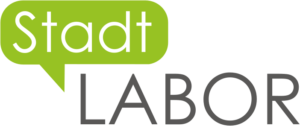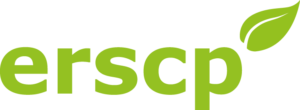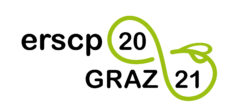Thematic sessions
The organizers of erscp21 invite interested people to organize sessions at the roundtable. Session managers will be provided with all necessary infrastructure at conference site. erscp21 will allocate a time slot and a room with the required infrastructure and publish the session on the website with the possibility to register. Name and logo of the session manager and/or his/her affiliation will be published on the erscp21 website.
Session managers will be responsible for the course of the event, introductory speakers and will invite participants. Session managers will get free participation for the whole roundtable and will be invited to the Governor’s Reception.
Thematic sessions already announced
 BIWAES 21
BIWAES 21
Biennial International Workshop Advances in Energy Studies 2021
Empowering Communities, beyond Energy Scarcity
Since the year 1998, the series of Advances in Energy Studies Workshops aimed at sharpening scientific focus and building a critical mass and collaborative network among scientists and social communities researching about energy and energy–related wellbeing. The Workshop was hosted by different countries (Italy, Brazil, Spain, Austria, India, Sweden). The 2008 Workshop was held in Graz (Austria). This year the Workshop takes place as a Special Session of the erscp2021.
Sergio Ulgiati and Hans Schnitzer (on behalf of the Organizing Committee)
 EcoProfit
EcoProfit
The EcoPROFIT program, in which over 200 Graz companies have participated since 1991, continues its success story (inter) nationally!To give an insight into an ECOPROFIT year, we will make the individual elements of an ECOPROFIT run visible. In supervised stations the areas:
– Introduction to ECOPROFIT – Workshop situation – Business consulting – Implementation of measures – Testing and certification will be demonstrated.
In addition to short presentations, the individual elements are developed interactively in parallel working groups together with the participants. All in the spirit of ECOPROFIT, where practical work/implementation is very important to us.
 Quartiers-/Stadtteilmanagements für ein klimaresilientes Quartier
Quartiers-/Stadtteilmanagements für ein klimaresilientes Quartier
Welche Beiträge können Quartiers-/Stadtteilmanagements leisten, um Impulse für einen nachhaltigen Lebensstil zu setzen? Wie können BewohnerInnen frühzeitig gewonnen werden, gemeinsam dem Klimawandel entgegenzuwirken? Welche Formate können im Alltag der Menschen Einzug finden? Welche Alltagspraktiken können eingeführt werden? Welchen Herausforderungen begegnet man im Rahmen der Beteiligungsschritte vom Erstkontakt, über nachbarschaftliche Konflikte hin zur Selbstorganisationen innerhalb der Community?
 Städtebauliche Verträge als Erfolgsmodell für eine nachhaltige Stadtentwicklung
Städtebauliche Verträge als Erfolgsmodell für eine nachhaltige Stadtentwicklung
Zivilrechtliche städtebauliche Verträge kommen in den letzten Jahren verstärkt zur Anwendung, um eine qualitätsvolle integrierte Stadtentwicklung im Sinne von Nachhaltigkeit, Klimaschutz und Lebensqualität für möglichst alle Menschen zu unterstützen. Im Rahmen der Session wird über kurze Impulse der Stand der Praxis/Umsetzung in Österreich (und den DACH-Ländern) reflektiert und ein moderierter Erfahrungsaustausch zwischen den beteiligten Akteuren ermöglicht. Mit Unterstützung des Klima- und Energiefonds.
Deutschsprachige Session!
Civil law urban development contracts have been increasingly used in recent years to support an integrated and sustainable urban development in terms of climate protection and quality of life. The session will reflect on the state of practice/implementation in Austria (and the DACH countries) via short impulses and enable a moderated exchange of experiences between the participants.
With the support of the Austrian Climate and Energy Fund.
German language session!
 CONDEREFF
CONDEREFFConstruction & Demolition Waste Management Policies for Improved Resource Efficiency
The CONDEREFF project brings together 8 partners from 7 countries to exchange experiences and practices on how to move forward from existing procedures on C&D (Construction & Demolition) waste management towards the adoption and further exploitation of the best practices and measures applied in the field. The project enables the participating regions to advance their goals for resource efficiency and green growth through the proper management of C&D waste, which can boost demand for C&D recycled and reusable materials and support both sustainability and circularity in the construction sector.
Project website: CONDEREFF | Interreg Europe
 SUBTRACT
SUBTRACTSustainable Reuse Centres
SUBTRACT supports 7 partners from 7 EU countries. Reuse centres are usually managed by small and medium-sized enterprises (SMEs), often social enterprises, that receive, prepare for reuse and distribute goods extending their product lifetimes with important social and environmental impacts, promoting a circular economy vision.
The project will research knowledge, exchange experiences, develop guidelines on how to develop the full potentials of reuse centres and render them competitive.
Efficient awareness strategies, campaign models and other suitable measures are being developed and tested to stimulate the supply and demand of reusable goods and render them attractive and desirable.
Project website: SUBTRACT | Interreg Europe
 PLASTECO
PLASTECO
Supporting EU Regions to Curb Plastics Waste and Littering
PLASTECO supports 8 partneers to:rs from 8 EU countries to take the steps necessary for a transition towards a “new plastics economy”. The project focuses on making progress in waste management, eradicating single-use plastics from regional value chains and promoting growth through eco-innovation.
PLASTECO enables partners and stakehold
- identify pathways for sustainable growth in plastics value-chains
- assess the current situation, potential, and barriers in their regions
- design and put into effect new policy measures and regulations
Project website: PLASTECO | Interreg Europe
The use of egoistic routing technologies creates high external costs. At the same time cities struggle to implement their traffic policies. Latest technologies offer solutions beyond egoistic choices and hand control back to city authorities. A discussion of collaborative routing and digital traffic-management for cities.
Twice the parcel volume and unprecedented demand for delivery services puts city resources under pressure. Delivery vans of several operators – servicing the same customers – occupy valuable urban space while adding to critical emission levels. Digital solutions on the last mile can mitigate the negative effects of delivery services while upholding high quality standards. A discussion of last mile optimization with integrated curb side management and case studies of the collaborative depot approach.
- Regional SCP through life cycle management

Sustainable development is now a major preoccupation of many regional authorities. Forward-looking regions and cities are exploring SCP, circular economy and industrial ecology frameworks as a basis of their policy planning.
Forward-looking regions and cities are exploring SCP, circular economy and industrial ecology frameworks as a basis of their policy planning.
The territorial and societal complexities of such policies demand a multi-dimensional approach, recognising the interrelationships between various SDGs that must be optimised together rather than one at a time.
The systematic use of life cycle methodologies – both assessment and management – can assist regions (and indeed all players) in working towards their SDGs in a more efficient manner. This session will examine the use of a “life cycle management toolbox” as a way to guide public authorities in implementing more holistic production and consumption policies and actions, whether through their own organisational structures or through a better framing of the options for the societal partners under their jurisdiction. Case studies from major cities and regions as well as from an on-going EU Interreg project are used to illustrate the utility of such a tool-box in addressing contemporary SDGs, including new challenges posed by evolving physical and social issues.
 Cooperative urban district development with focus on quality of life and climate resilience – examples and reflections from practice
Cooperative urban district development with focus on quality of life and climate resilience – examples and reflections from practice
Urbanization and global warming are among the central challenges cities face worldwide. On the one hand, living space must be created for new population, which often leads to further densification and sealing of urban areas. On the other hand, solutions must be found for the negative consequences of global warming (summer overheating, heavy rainfall, etc.). Both aspects – redensification and climate change consequences – have a significant impact on the quality of life for the people living in a city.
- Circular design
![]()
The current challenge from climate change requests a shift from linear to circular economy. Beside changing services, business models we need to develop products following the principles of circular design. As such this session concentrates on the design of products that enables an efficient use of resources in terms of prolonging products lifetime, enables repair, reuse, refurbishing, remanufacturing, or recycling. This session contributes and focuses on circular designed product concepts and the related technologies needed, but also on design methods and tools to support the development of circular products that contributes to the reduction of resource consumption. We also welcome methods measuring the circularity performance of products, using indicators for determining the circularity and the relation to the environmental performance of products. Circular business models are of interest as well if the link to the (redesigned) product can be shown.
- New trends in circular economy

Circular Economy is considered to have the potential for changing production and consumption patterns towards a more sustainable direction.
Consequently, it is a core element of the “European Green Deal” and its Action Plan.
This thematic session presents new trends in Circular Economy, taking into account recent research results from scientists of the University of Graz, but also from other colleagues outside and inside of Austria.
Institute of Systems Sciences, Innovation and Sustainability Research, University of Graz
- The role of Positive Energy Buildings (PEBs)

 in the city energy infrastructure
in the city energy infrastructure
In this session we will present first results of the H2020 funded project EXCESS (https://positive-energy-buildings.eu), a project showing technical solutions that enable buildings to produce more renewable energy than they consume over the course of a year. One of the four demo projects (which span across the Nordic, Continental, Oceanic and Mediterranean climate zones) is located in Graz at the Tagger Area. Specific technologies on building and district level used in Graz (e.g. multifunctional façades, renewable energy system, block-chain, etc.), new ways of sharing infrastructure for energy supply, the multifunctionality of PEBs and their role in city planning processes will be up for discussion with city administration as well as researchers and all interested participants of ERSCP2021.
- InnoQuarter – EU-North Sea Region Interreg
project for the design, implementation and experimentation for sustainable innovation via festivals.
design, implementation and experimentation for sustainable innovation via festivals.
Inno-Quarter (https://innoquarter.eu) is an EU Interreg North Sea Region project, aimed at festivals as “dance floors” for contribution to sustainable innovation. Innovation here can be a new sustainable product/service/system, by a startup or by an SME, often with the involvement of education&research institutes, their students and staff, NGOs and dedicated local governments. The goal of Inno-Quarter is to use European festivals to test innovations, that contribute to sustainable development. The proposition is that this works since a festival is often a temporary mini society. Just like in “real life” sustainable challenges exist in areas such as energy, waste and food. And festival visitors move, eat and sleep as well. The assumption is that festivals are outstanding test environments to collaborate on prototypes and experimental techniques, as well as to get rich user feedback in a short time, improving and speeding up the sustainable innovation process. Building on the outcomes of the Dutch InnoFest program (8 festivals in Northern Netherlands), Inno-Quarter, that started in 2017, involves a network of various Northern-European festivals, research institutes, NGOs and local governments.
- EProfEng: A Tempus Project for Life Long Learning,
focusing on Egyptian Universities
The world is experiencing a transition from production-based economies to ones based on knowledge and information. This transition changed the nature of jobs and the required skills. Competing in this global economy requires a science and engineering workforce that is consistently at the technological forefront. So, the world should examine the extent to which their current workforce meets their needs for human capital.
The project has developed distance learning courses in engineering, sustainabile development, appropriate technology, international education and development, business, and provides an opportunity for professional engineers to enroll in a concrete training program of study in Egyptian universities .
The interdisciplinary program is offered to professional engineers interested in community service and international development. To examine these issues and challenges, a wide variety of people will contribute to this project, including engineers, economists, scientists from the public and private sectors, and from the profession and universities.
The program is developed in partnership with a wide range of academic and nonacademic groups in EU and Egypt and addressees three different engineering discplines Mechnical, Electrical and Construction.
 How to accelerate positive impact innovation to address climate change?
How to accelerate positive impact innovation to address climate change?
EIT Climate-KIC is Europe’s largest public-private climate innovation initiative focused on cities, industry, land use and finance.
The session will focus on answering these three questions.
- How to choose and support the right start-ups to get to climate impact? (KPIs support and funding strategies that will accelerate positive impact innovations)
- How can we leverage the opportunity of impact investment?
- How to ask innovators for impact?

- Recycled plastic products in public purchasing: tendering, evaluation
and contract design
According to the EU Plastics Strategy, 10 million t of plastic recyclates are to be used in new products in 2025. Therefore, Member States are called upon to take measures to expand plastics recycling and the use of recyclates. How to adapt public procurement activities to this Strategy and to the ammended EU Waste Framework Directive (Commission Decision (EU) 2019/1004)?
Since October 2020, the German Recycling Management Act adopted main changes by setting a preference obligation for public procurement of products manufactured using recyclates.
In this session, key findings from the German Federal Environment Agency’s research project “Examining measures to increase demand for recycled plastics and plastic products containing recyclates” will be presented: A tender guideline for plastic products containing recyclates and proposals for accompanying activities to increase the demand for office supplies, chairs, garbage cans, traffic guidance supplies, rigid tanks to the EU Waste Framework Directive with regard to the recycled content. The guidance information presented in this session support contracting authorities adapting their tender documents, deliver early insights for industrial procurement and sales officers on upcoming requirements and demonstrate at politicians and researches on how EU regulation supporting a circular economy is transferred into urban and national practice.
- UN Sustainable Development Goals Calculator

Local Agenda 21 Gladsaxe, Denmark, has developed a UN Sustainable Development Goals Calculator online. At the erscp21, this calculator will be presented in English. It is now available only in Danish. In this workshop, Kim Christiansen and Carl-Ejnar Nielsen will present this online SDG calculator and all participants will be invited to test and discuss.

- ERSCP Society: Achievements of 30 years SCP and 20 European Roundtables on CP/SCP and how to move forward
This session builds on Inputs by the conveners, board members of the ERSCP society, as well as former organisers of roundtables and key persons in the ERSCP and Prepare networks, including: • Han Brezet, on achievements and progress of eco-design • Jack Luskin, on achievements on Cleaner Production • More inputs are expected from previous organisers of the ERSCP and key persons in the SCP/CE networks in Europe, so
The current ERSCP Society seeks to motivate and encourage all stakeholders to work on new ideas of Sustainable Consumption and Production and a Circular Economy in order to promote transition to sustainable and circular societies. ERSCP roundtables are meant to gather stakeholders from Europe and guests from elsewhere on the world in dialogues and interactive sessions and workshops designed to to exchange knowledge and experience, develop new project-ideas and new networks, to find new co-operation partners and to establish new collaborations.
- Sustainable Consumption & Production for Social change:
sharing methods, from the real-world to the classroom
Considerable effort by SCP scholars has been given to developing transdisciplinary understanding of social change processes (both structural and strategic) because of their key role in shaping lifestyles and sustainability transformations.
In this session, we will bring together researchers, educators and practitioners who are involved in the theory and practice of knowledge acquisition and exchange, learning and education for social change in the context of sustainable consumption and production. By education, we include all levels of education as well as social learning experiences, such as multi-actor workshops or co-design efforts. Presenters will briefly share a teaching method or approach, in a dynamic series of short presentations. These experiences will serve as a catalyst for discussions with all participants. Following these presentations, participants will engage in group discussions around key priority topics that are identified collectively.
- Sustainability in Urban Vertical farming
In our special session we will present and discuss sustainability effects of existing commercial urban farms, including theoretical frameworks how to assess the contribution of urban farming to sustainability/resilience in urban regions. We will also explore insights into different formats of urban farms (incl scales and technological complexity) and their conditions, barriers and drivers. We will ask invited participants to present their work in short presentation formats, possibly using the World café format.
Discussion points evolve around the following topics: How do expected functionality and effects of urban farms match the reality, what is needed for scaling up, what can we learn from LCA/LCC etc of urban farms and how can these learnings be implemented in reality?

